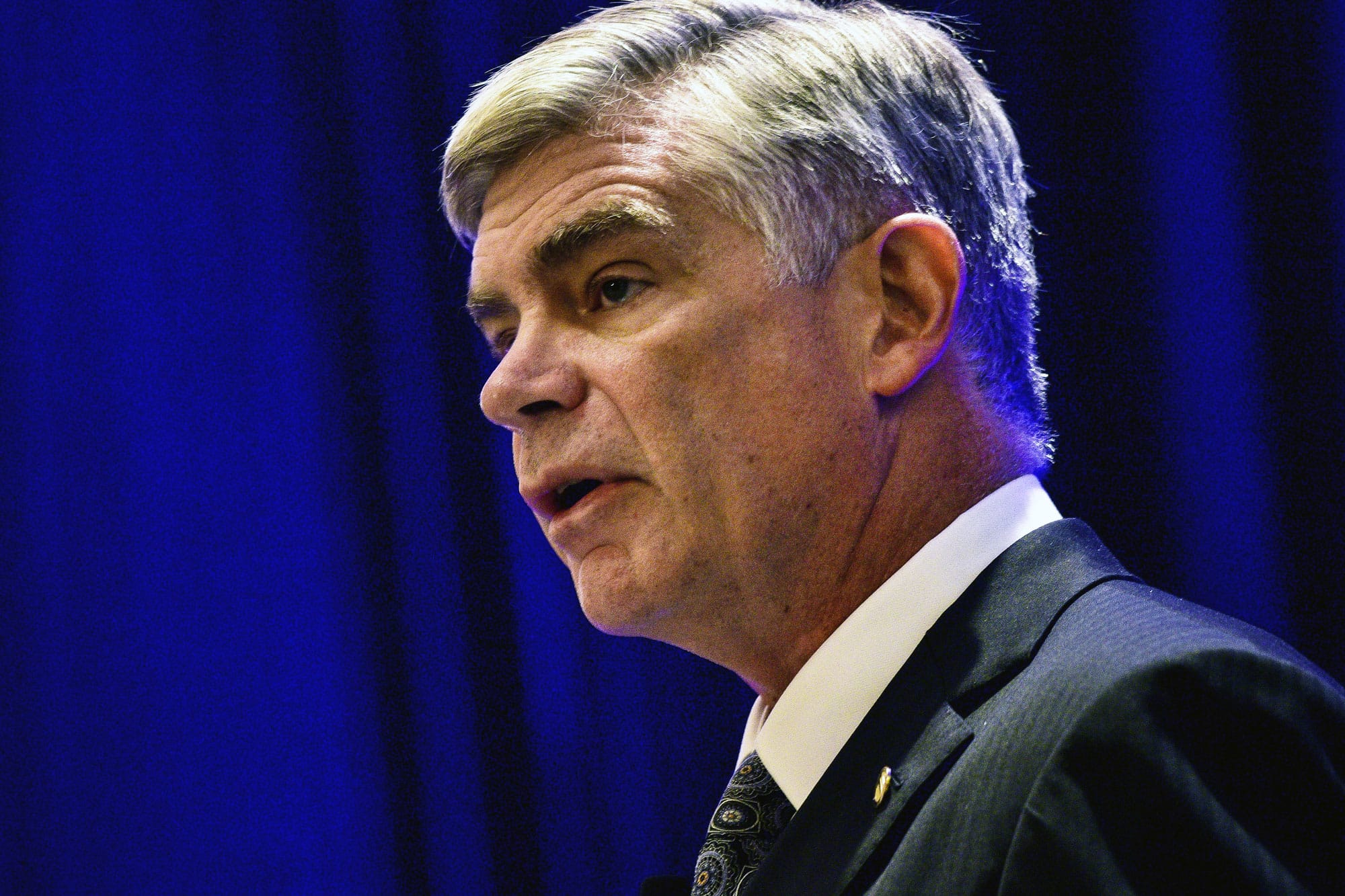Patrick T. Harker, president of the Federal Reserve Bank of Philadelphia
Charles Mostoller | Bloomberg | Getty Images
Philadelphia Federal Reserve President Patrick Harker said Friday that it will take a significant amount of time before the U.S. sees unemployment figures return to their pre-coronavirus lows.
Harker, a voting member of the Federal Open Market Committee, also said he would be comfortable allowing inflation to rise as high as 3% so long as it does so at a slow and manageable rate.
He joined CNBC’s “Squawk Box” to discuss the central bank’s new inflation goal, which Chairman Jerome Powell announced Thursday.
“Right now, you’re seeing some signs of recovery, but basically it’s moving sideways,” Harker said of the U.S. labor market. “We still have 27 million that are on some form of unemployment and we won’t get fully back to the kind of employment —we had this great employment picture before the crisis — for quite a while.”
“If you think about it, it took us two years to go from 5% unemployment to 4% unemployment,” he added. “It took another year and a half to go from 4% to 3.5%, where we were before the crisis.”
Harker also said investors could see consumer spending and retail revenues decelerate in August from July as the end of the federal government’s $600-a-week bolstered unemployment benefits curtails how much U.S. households spend.
Cleveland Fed President Loretta Mester told CNBC earlier on Friday that she believes more economic support will be needed from the central bank as the U.S. recovery from the coronavirus will be a “slow one.”
The commentary from both Mester and Harker comes less than a day after Powell announced a major policy shift and said the central bank will allow inflation to run hotter than normal to support the recovery of the labor market and broader U.S. economy.
The Fed formally agreed to a policy of “average inflation targeting,” meaning it will allow inflation to run “moderately” above the Fed’s 2% goal “for some time” following a period of below-average price appreciation. Inflation has undershot the central bank’s 2% for most of the time since the financial crisis.
In the 12 months through July, the core PCE price index increased 1.3% after rising 1.1% in June. The core PCE index is the preferred inflation measure for the Federal Reserve’s 2% target.
Asked what level of inflation he’d be comfortable with, Harker explained that he thinks the pace of inflation’s rise is more important than the number to which it rises.
I’d be comfortable with inflation “somewhere north of 2%. But to me, it’s not so much the number, whether it’s 2.5% or 3%,” he said. “It’s whether it’s reaching 2%, creeping up to 2.5% or shooting past 2.5%.”
“So, it’s really about the velocity of the inflation, not just the overall level,” Harker added.
Subscribe to CNBC PRO for exclusive insights and analysis, and live business day programming from around the world.
